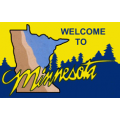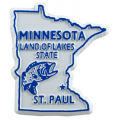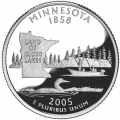The master of science in nursing (MSN) is a graduate degree program that trains students for specialty careers in advanced practice nursing. Unlike more general associate’s and bachelor's degree programs, MSN programs enable students to narrow the focus of their studies and specialize. Students can choose to focus on nursing administration, nursing education, adult health, public health, community nursing, or a number of other subfields.
Latest articles
If you’re thinking about becoming a registered nurse (RN), then taking the time to pursue a bachelor of science in nursing (BSN) is a worthwhile investment in your future. Employers are making it increasingly important for RNs to hold bachelor’s degrees in order to remain competitive in the field. Besides, RNs have such important responsibilities in healthcare, it is essential that you prepare for the challenges by giving yourself the best education available.
Prospective nurses must consider the costs of attending a nursing school when choosing the right program, especially since these costs differ greatly from school to school. The cost of nursing education varies because of the sheer number of factors that contribute to the bottom line. Schools in different locations will require different expenditures on necessities like books and supplies. Costs also vary based upon length of program, as well as whether the institution receives public funding.
Private nursing schools provide a high-quality education in a stimulating learning environment. Knowing the advantages of a private-school nursing education is essential for students looking to begin their nursing career successfully.
Private nursing schools in Minnesota
Prospective nurses in Minnesota should consider the state’s public nursing programs. All offer an affordable and high-quality education.
Public nursing schools
Three nursing roles are most prevalent in the Washington, DC suburbs of Maryland: certified nursing assistant (CNA), licensed practical nurse (LPN) and registered nurse (RN).
Role descriptions
To become a nursing assistant, candidates complete a certification program lasting 8-10 weeks, often followed by a state-administered examination. Upon completion of this program, CNAs are qualified to work under the supervision of LPNs and RNs.
In Prince George’s County, Maryland, nursing roles typically fall into one of the following three categories: certified nursing assistant (CNA), licensed practical nurse (LPN), and registered nurse (RN).
The first category, nursing assistants, operate largely under the supervision of LPNs and RNs. To become a nursing assistant, candidates complete a certification program lasting 8-10 weeks. This program is usually followed by a state-administered examination.
There are three primary types of nurses in Montgomery County, Maryland: certified nursing assistants (CNAs), licensed practical nurses (LPNs), and registered nurses (RNs).
Nursing assistants
Nursing assistants work under the supervision of LPNs and RNs. They need to complete a brief eight- to ten-week certification program in order to become a qualified healthcare professional. A state-administered examination follows this program.
Licensed practical nurses
Registered nursing (RN) to master of science in nursing (MSN) programs
The nursing programs in Springfield, Massachusetts, provide students a wide range of training specialties, favorable career opportunities, and abundant practical experience.
An overview of nursing roles










